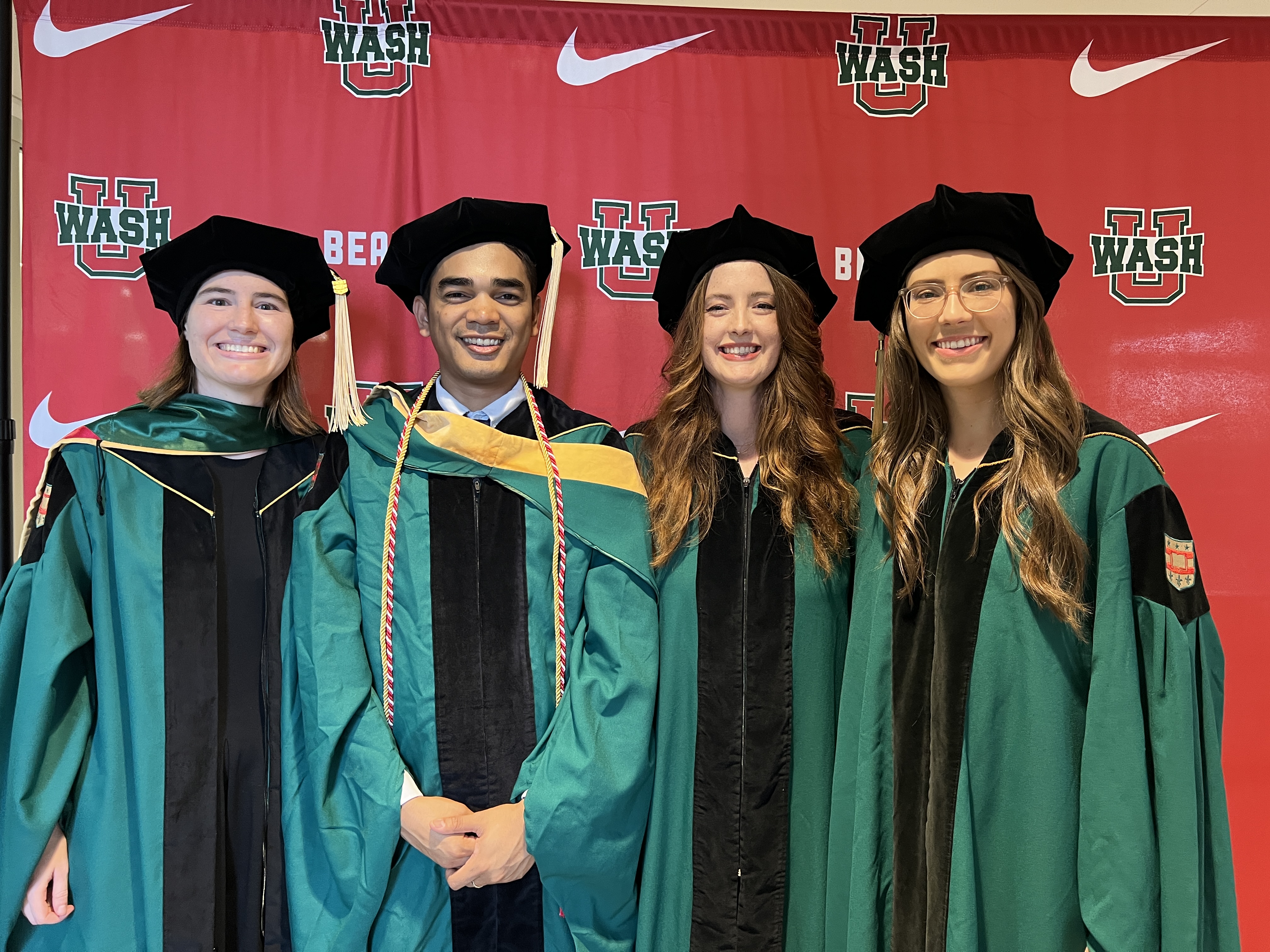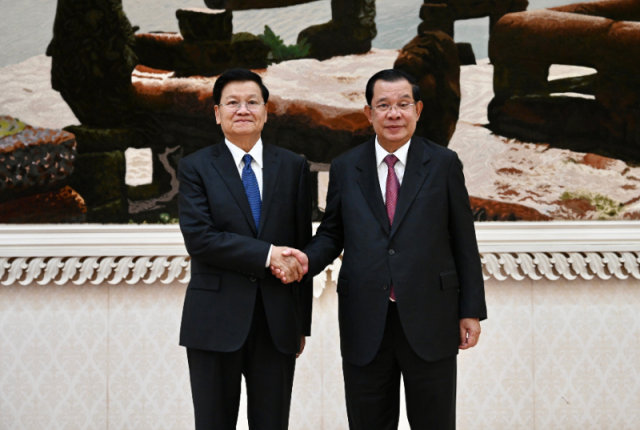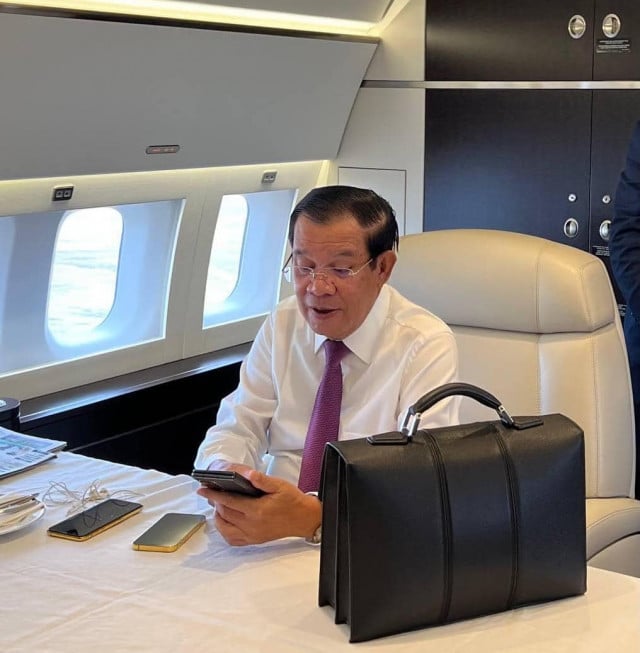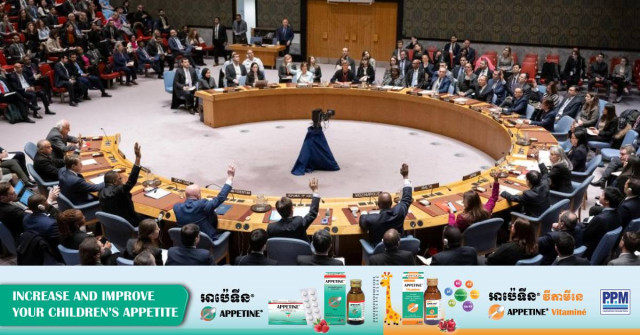Social Work Vision for a Better Cambodia
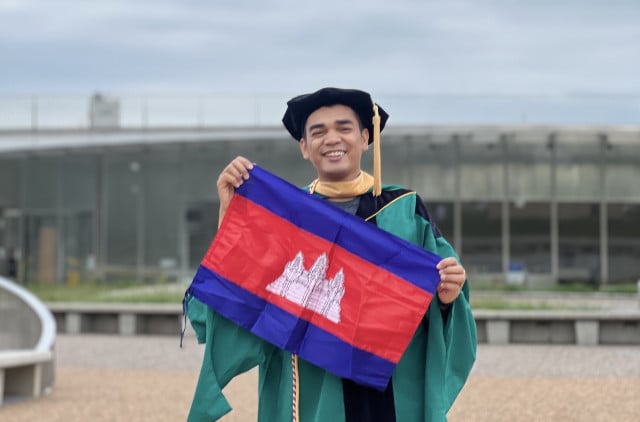
- By Sao Phal Niseiy
- July 9, 2023 8:11 PM
Social work professionals play a critical role in every society, particularly developing ones, as many people desperately need support to overcome social challenges. Cambodian student Kong Vibol is on a path to fulfilling his dream of becoming a social work professional after completing his master’s degree in social work with a concentration in mental health from Brown School at Washington University in St. Louis (WashU) with the support of the Civil Society Leadership Scholarship. As he is about to begin his doctoral degree in Social Work, Vibol explains why Cambodia requires more social work professionals and his plans to support the development of this sector after graduation.
Sao Phal Niseiy: Why did you choose a degree in social work and what did you study throughout your course?
Kong Vibol: I was part of a research team responsible for establishing social work standards in Cambodia. During this project, I had the opportunity to meet and collaborate with exceptional social workers and their supervisors in five provinces across the country, gaining valuable insights into the grassroots level of social work.
Through these experiences, I recognised a significant need for specialised clinical social work focusing on mental health. Given my interest in this field, my primary objective is to pursue a higher degree in clinical social work.
Clinical social work specialisation primarily concerns mental health professions such as therapy, counselling, and other related mental health disciplines. While exploring the course offerings at Brown School during my degree, I discovered many fascinating fields within mental health. Consequently, I shifted my focus from clinical social work to the social work research track, specifically emphasising mental and behavioural health. Over 22 months or two years of full-time study at the George Warren Brown School of Work, I engaged in a comprehensive curriculum covering various mental health and substance use aspects. This included courses on differential diagnosis in mental health, substance use treatment, contemporary behavioural and mental health, behavioural health welfare policy, and social welfare policy, as well as research-oriented courses such as biostatistics, applied linear modelling and research seminars.
Furthermore, as part of the social work standard of education, I was required to complete a practicum. I successfully fulfilled this requirement by dedicating 960 hours to practical training in the US. My first practicum involved working with a research team focused on depression and social media research in a medical school laboratory. In my second practicum, I served as a program assistant at the St. Louis County Children's Service Fund, where my work concentrated on specific areas within the field.
Sao Phal Niseiy: Cambodia has seen rapid development over the past decades as a least developed country. However, it also has encountered various issues deriving from the social development processes, such as healthcare, unemployment, food safety and security. How do you see the role of social workers in Cambodian society? Do we need more of them?
Kong Vibol: First and foremost, I would like to explain what social work entails. The social work profession operates across three distinct dimensions: the micro, mezzo, and macro levels of practice.
The choice of focus within these levels depends on an individual's interests and preferences. For instance, if one is passionate about working with individuals experiencing mental health challenges, one may opt for a micro-level role as a direct practice practitioner.
On the other hand, those interested in community or social policy may engage with the macro level, focusing on areas such as legislation and policies concerning senior citizens or social protection. This may involve advocacy and lobbying efforts. In summary, the role of social workers can vary significantly based on their chosen level of practice, with individuals specialising in areas such as school social work or hospital-based social work.
Now, the question arises: Do we need more social workers? The answer is affirmative. However, determining the specific level of practice requires further examination. I would like to witness more social workers specialising in clinical social work, particularly those dedicated to addressing mental health issues across the spectrum, ranging from direct practice to research and policy levels.
Sao Phal Niseiy: What can people do with this degree, and where are they commonly employed?
Kong Vibol: Based on my knowledge, many social work graduates find employment in NGOs/INGOs, while some pursue careers in government sectors. A social work degree offers opportunities for practitioners to work at various levels, ranging from social workers to case workers, and even policymakers, utilising their knowledge, skills, values, and ethical practices. Like other professions, social work is guided by a robust code of ethical conduct. With a social work degree, coupled with the acquired knowledge, skills, and values, we as social workers can effectively adapt to diverse work settings, effectively addressing social work issues.
Sao Phal Niseiy: As you receive another scholarship, you will embark on PhD studies in social work. Why did you decide to take a PhD degree immediately after your graduation?
Kong Vibol: Throughout my master's degree, I realised that I have not yet explored as much as I would have liked to in terms of what I want to see and accomplish. Pursuing a PhD will provide me with a more profound research immersion, particularly in mental health.
My areas of interest include intergenerational trauma and trauma-informed care, which will be the focal points for my PhD research topics. Additionally, I have been fortunate to establish connections with several professors in the US, both from my current school and others. I have received offers of admission from two different schools for the PhD program. Considering the favourable circumstances, I believe it is an opportune time to transition directly from my master's degree to the PhD level.
In addition to my academic pursuits, I have accumulated over five years of experience working in various social work roles, including case manager, social worker, trainer, and involvement in policymaking. Drawing from these experiences, I am confident that the knowledge, skills, and values I have acquired throughout my career will significantly contribute to my commitment and capabilities in completing the PhD in social work.
Sao Phal Niseiy: What will you do after completing your doctoral degree? What are your long-term plans?
Kong Vibol: It will take me approximately four to five years to complete my degree and I have yet to formulate any specific plan. However, I am confident I will immerse myself in mental and behavioural health research. Additionally, I aspire to take classes that would enable me to become an instructor. Furthermore, I would be delighted to contribute to advancing the social work profession in the coming years.
Sao Phal Niseiy: As you have come this far, you have gained more expertise and experience in the social work sector. Can you share a message that can be inspirational and beneficial for young people interested in social work?
Kong Vibol: I don't know what to say but remember this: I started with zero knowledge about social work but gradually developed a liking for it. I have thrived in this field through dedication, commitment, and a drive to improve.
If you're considering a career as a social worker, the knowledge and skills you acquire will support your effectiveness. However, it is the core values that truly define a social worker. As a proud member of the social work community, I am part of the solution. If you wish to join us, let's commit and thrive together.
Although the social work profession may not be widely recognised and may not yield substantial financial gains, we wholeheartedly embrace the opportunity to help those in need and contribute to their life trajectories. Lastly, I would like to thank all my teachers and mentors. I am fortunate to have been part of the esteemed DSW – RUPP class of 2015.







